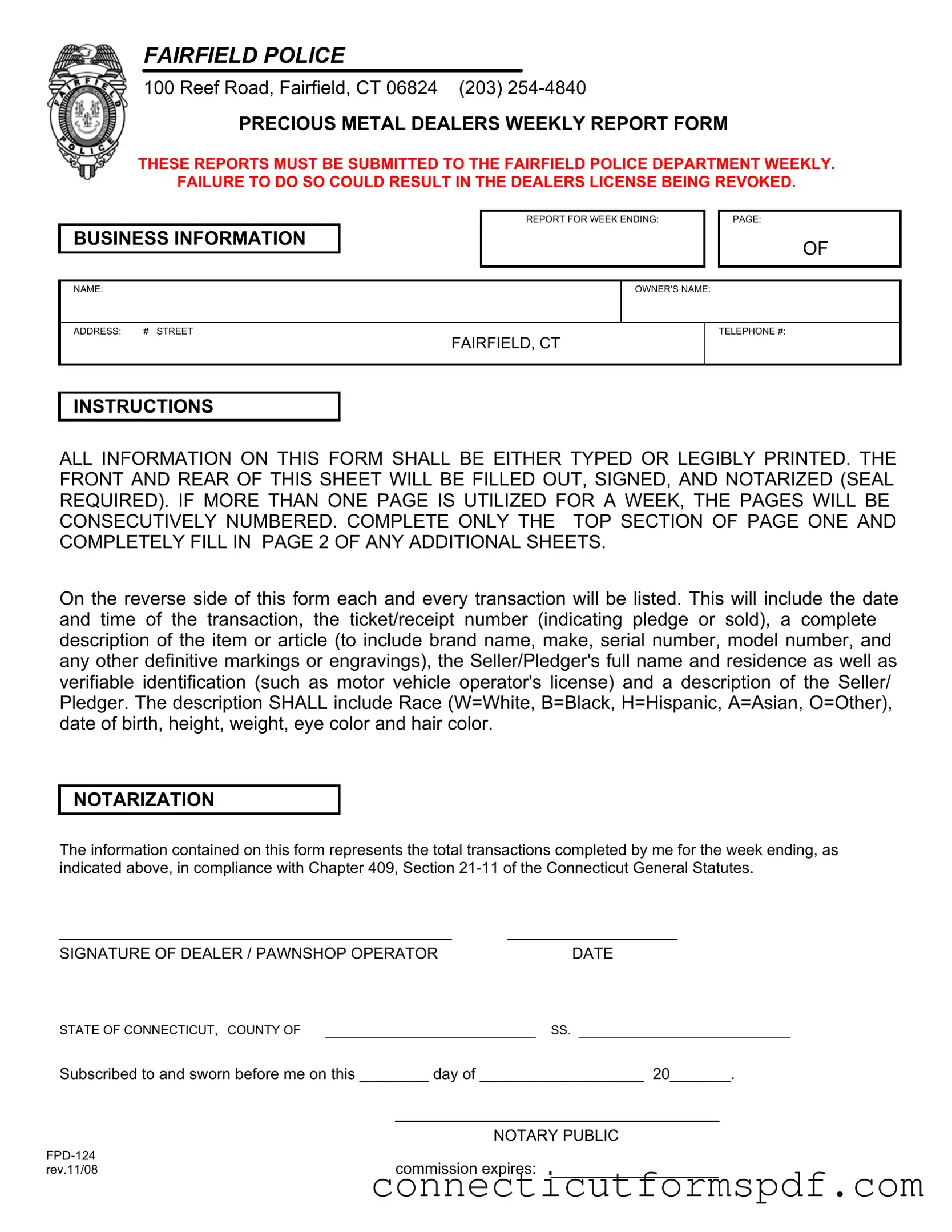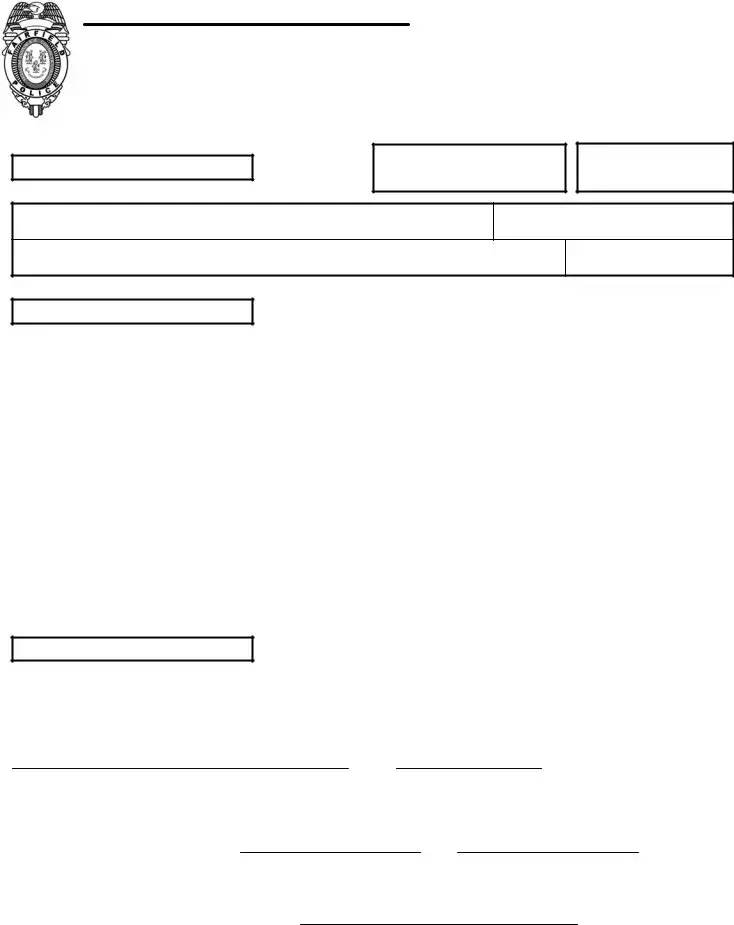When filling out the Connecticut FPD 124 form, a crucial document for precious metal dealers in Fairfield, it's essential to avoid common mistakes to ensure compliance and prevent potential issues with licensing. This form, designed to track transactions in detail, requires careful attention to several critical areas.
One of the first mistakes often made is improperly reporting business information. The form necessitates clear and accurate details regarding the business, including the name, owner's name, and contact information. An error in this section can lead to misidentification or delays in processing the report. Additionally, it is important to indicate the report week correctly; inaccuracies can result in non-compliance with the weekly submission requirement.
Failure to provide complete transaction details is another common error. The form requires a comprehensive list of each transaction, including information about the item sold or pledged and the seller or pledger. Missing details, such as the item's brand name, serial number, or the seller's identification number, can compromise the integrity of the report and potentially aid in illegal activities going unnoticed.
The necessity of notarization is often overlooked. Each form must be signed, dated, and notarized to validate the information provided. Neglecting the notarization requirement can result in the entire report being deemed invalid, risking the dealer's compliance with Chapter 409, Section 21-11 of the Connecticut General Statutes.
Furthermore, dealers sometimes mishandle the pagination of the form when multiple pages are necessary to record all weekly transactions. It's imperative to consecutively number pages and ensure that only the top section of page one is completed once, with subsequent pages fully detailed as required. Failing to number the pages consecutively or incorrectly filling out page headers can lead to confusion and misplacement of crucial transaction data.
To sum up, avoiding these mistakes involves:
- Meticulously entering all business information.
- Providing detailed transaction records.
- Ensuring the form is correctly signed, dated, and notarized.
- Correctly numbering and detailing multiple pages when necessary.
By paying close attention to these details, precious metal dealers can maintain compliance, avoid potential penalties, and contribute to lawful business practices.



